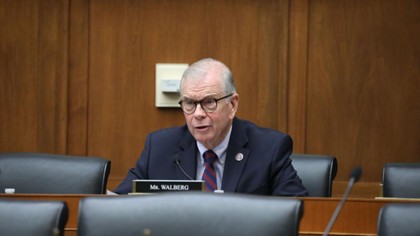Virginia’s new school accountability system is taking shape
by Nathaniel Cline, Virginia Mercury
The Virginia Board of Education took another step on Friday to clarify how schools will be rated and student performance measured to better determine how to direct state resources.
The board, on the superintendent’s recommendation, approved four performance descriptors: “Distinguished,” “On Track,” “Off Track” and “Needs Intensive Support.”
Schools considered “distinguished” are those that exceed the state’s expectations for growth, achievement, and readiness, while “needs intensive support” schools are those that “significantly” do not meet any of the state’s expectations.
The “on-track” and “off track” descriptors mean schools are either meeting or not meeting expectations. However, questions surfaced on where the terms came from, the benchmarks, and the descriptions behind the labels.
Under the proposed plan, Virginia will begin collecting data for the new performance framework starting in August. Results will be released during the 2025-26 school year.
Board President Grace Creasey, a Gov. Glenn Youngkin appointee, said the department will do more work to flush out the descriptions as the revision of the state’s accreditation system moves forward.
“I would like to remind us that the purpose here is transparency and understanding on behalf of not just people in schools, not just those of us sitting here in this room, not people who do education every day,” said Creasey on Friday. “This is for people to understand who are parents and families; and so while we’re deciding what the main categories are, these descriptors have yet to be fully baked at this point.”
Earlier in the process of revising the accreditation system, the board considered two different measures to track academic performance: an achievement index and an overall school rating, which raised concerns about the potential impact on low-performing schools and efforts to recruit teachers and influencing parents to seek other school choices for their children.
Since April, teachers, parents, students, and education leaders have told the board they support using category descriptions instead of an A-F rating scale.
The category descriptors are part of a larger plan by Youngkin’s administration to overhaul the existing accountability system, which focuses on accreditation and measures schools based on academic achievement, performance gaps, student attendance and graduation and dropout rates, and factors like building safety, student-teacher ratios and licensure.
Schools are then labeled accredited, accredited with conditions or not accredited.
Members of the administration and the board have criticized the current system for being vague and failing to address declines in student performance in subjects such as math and reading.
The administration’s process includes splitting up the state’s accreditation system into two parts: an accreditation system, to assess whether schools meet all requirements laid out in state laws and regulations; and an accountability system, to provide “timely and transparent information on student and school performance.”
Under the new system, schools will be rated based on students’ success, measured by their mastery of subjects and academic growth.
Stakeholders and the board are split on the weight factors totaling the overall score for each school level.
Earlier the board expressed that “mastery” is important to make sure students thoroughly understand the concepts before graduating to the next grade level. Others have urged the board to keep “mastery” and “growth” at an equal weight.
The overall score for elementary schools consists of three weight factors: 65% mastery, 25% growth, and 10% readiness.
In middle schools, the performance score is weighted 60% mastery, 20% growth and 20% readiness; high schools’ performance score is weighted 50% mastery, 35% readiness and 15% graduation.
VDOE staff said the performance descriptors would be in addition to the three federally required support and improvement identification categories: Comprehensive, Targeted and Additional Targeted. The designations are given to schools because a specific group of students may need assistance in catching up to the instruction.
Schools identified as “comprehensive” receive full federal support for the entire school, compared to “targeted” schools, which receive support for low-performing subgroups.
“This is all about providing a holistic picture to the public that’s more transparent, more clear about where schools are performing across all the indicators in the system,” said Anne Hyslop, director of policy development for All4Ed.
Last year, the department contracted with Hyslop to work on changes to the accreditation system along with Chad Aldeman, the Edunomics Lab policy director at Georgetown University.
Board member Anne Holton, former state secretary of education and an appointee of Democratic Govs. Terry McAuliffee and Ralph Northam, was the lone vote against accepting the recommendation, saying she needed more information about the descriptors.
“There are at least a dozen significant decisions, including one of the most important decisions of these ‘where the lines are going to be drawn’ that we haven’t made yet, even though we’re implementing the system starting with the school year that starts in six weeks,” Holton said.
She added that she’s concerned that the proposed accreditation system has not been “fully thought out” and will have “unintended consequences” on teachers, families and “our neediest students.”
(Virginia Mercury is part of States Newsroom, a nonprofit news network supported by grants and a coalition of donors as a 501c(3) public charity. Virginia Mercury maintains editorial independence. Contact Editor Samantha Willis for questions: info@virginiamercury.com. Follow Virginia Mercury on Facebook and X.)



